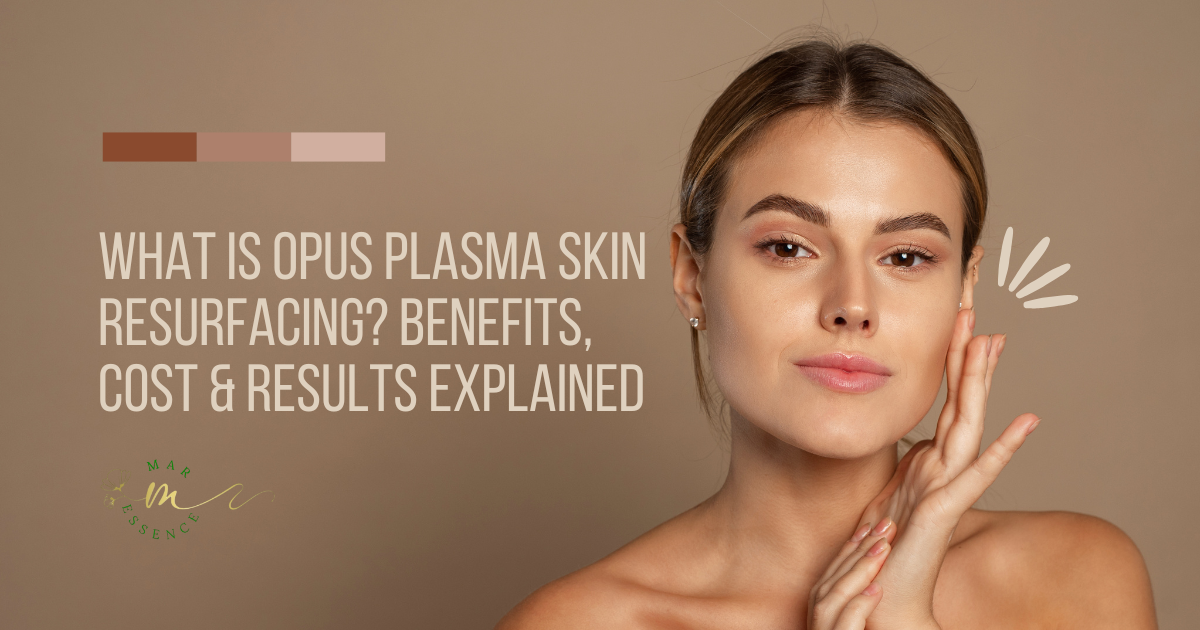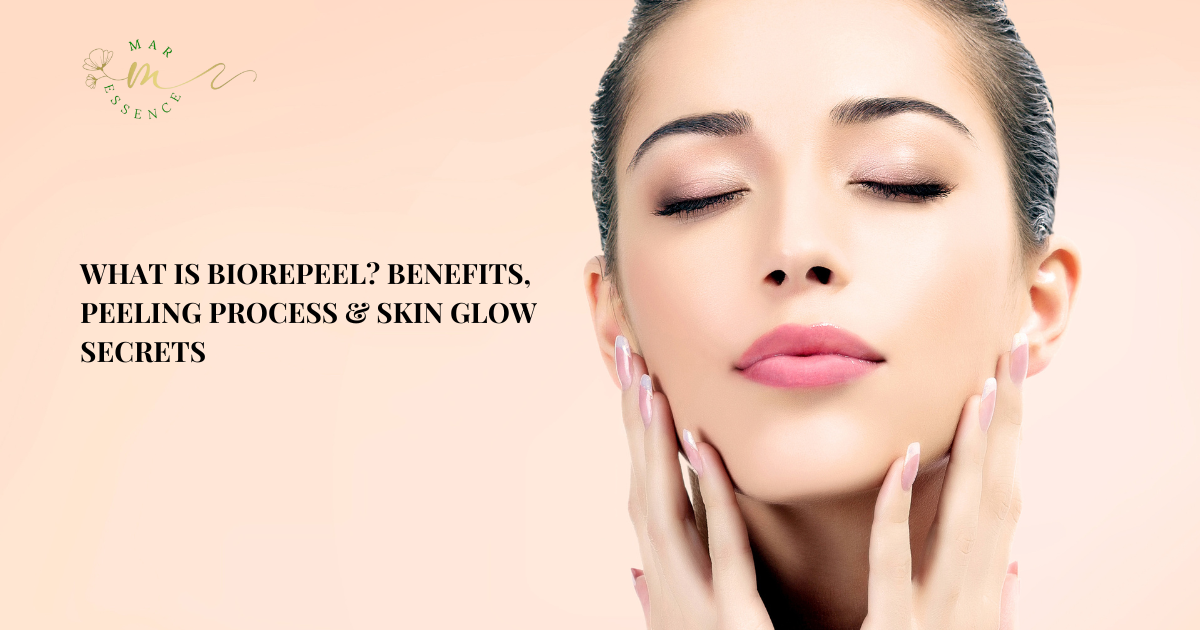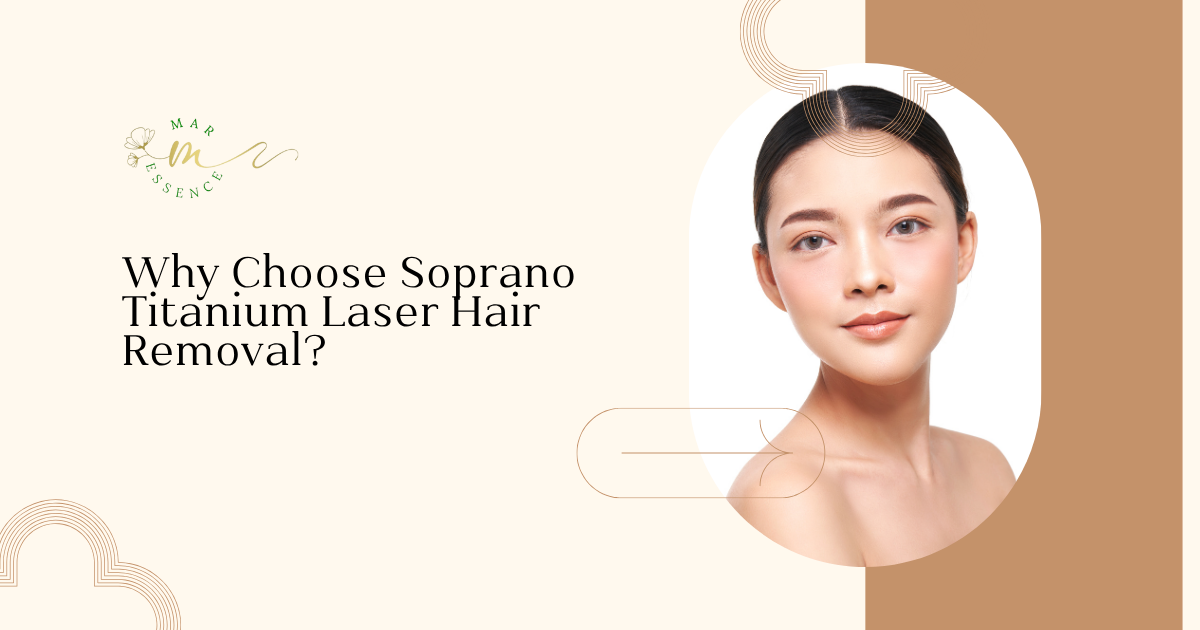
What Is Opus Plasma Skin Resurfacing? Benefits, Cost & Results Explained
In the ever-evolving world of aesthetic treatments, non-invasive procedures continue to gain popularity. One of the latest innovations making headlines is Opus Plasma Skin Resurfacing. If you’re looking to rejuvenate your skin, reduce fine lines, and improve texture without the downtime of traditional lasers, this might be your next go-to solution.
In this comprehensive guide, we'll explore what Opus Plasma is, how it works, its benefits, side effects, cost, real-life results, and how it compares to other popular treatments.
What Is Opus Plasma Skin Resurfacing?
Opus Plasma is a fractional plasma technology that combines radiofrequency (RF) energy with plasma energy to resurface and tighten the skin. It’s the first-of-its-kind device to offer a hybrid approach, treating the skin’s surface and deeper layers simultaneously.
Unlike traditional lasers that rely solely on light-based energy, Opus Plasma uses plasma generated from radiofrequency to create controlled micro-injuries. These micro-injuries stimulate collagen production and accelerate the body’s natural healing process, leading to smoother, firmer, and younger-looking skin.
How Does Opus Plasma Work?
Opus Plasma works by delivering RF energy to a metal tip, which interacts with atmospheric pressure to create plasma. This plasma energy targets the skin with precision, resurfacing damaged areas while leaving surrounding tissue intact.
Key Features:
Customizable intensity settings
Treats face, neck, hands, and body
Suitable for all skin types
The Treatment Process:
Consultation – Skin assessment and personalized plan
Preparation – Numbing cream is applied to minimize discomfort
Treatment – The Opus handpiece glides over the skin
Aftercare – Hydrating serums and sunscreens recommended
Most sessions take around 15 to 30 minutes, and patients can resume daily activities within 1-2 days.
Benefits of Opus Plasma Skin Resurfacing
Opus Plasma offers a range of benefits for individuals seeking non-surgical facial rejuvenation:
1. Improves Skin Texture
It smooths rough patches and uneven surfaces.
2. Reduces Fine Lines and Wrinkles
By boosting collagen, it softens expression lines and crow’s feet.
3. Minimizes Acne Scars and Pigmentation
Opus Plasma fades post-acne marks and hyperpigmentation.
4. Tightens Loose Skin
RF energy promotes skin tightening, especially around the eyes and jawline.
5. Minimal Downtime
Compared to traditional CO2 lasers, the recovery time is shorter—usually 1 to 3 days.
6. Safe for All Skin Tones
Thanks to its customizable settings, it’s considered safe for darker skin tones with a lower risk of hyperpigmentation.
Who Should Consider Opus Plasma?
This treatment is ideal for those who:
Want smoother, younger-looking skin
Have mild to moderate skin laxity
Have acne scars or fine lines
Prefer non-surgical solutions with little downtime
However, it may not be recommended for:
Pregnant or breastfeeding women
Individuals with active skin infections
People with certain autoimmune disorders
Real Results: Before & After
What to Expect:
1–3 sessions typically recommended
Visible improvements often seen after just one session
Full results appear within 2–4 weeks post-treatment
Example: A 40-year-old female patient with mild wrinkles and sunspots noticed significant texture improvement and fading of age spots after two sessions spaced 4 weeks apart.
Latest News and Innovations
In 2024, Opus Plasma continues to gain popularity among dermatologists and med spas globally. It was recently highlighted at the American Academy of Dermatology Conference for its cutting-edge combination of RF and plasma energy.
Some clinics now combine Opus Plasma with microneedling or PRP therapy for enhanced collagen stimulation, making it a go-to solution for full facial rejuvenation.
Cost of Opus Plasma Skin Resurfacing
The price varies depending on geographic location, provider experience, and treatment area.
Average Pricing:
Face Only: $600 – $1,000 per session
Neck: $300 – $500
Face + Neck: $800 – $1,400
Hands or Small Areas: $250 – $400
Clinics often offer packages (e.g., 3 sessions at a discount), and some financing options may be available.
Opus Plasma vs Other Skin Treatments
FeatureOpus PlasmaCO2 LaserMicroneedlingChemical PeelTechnologyRF + PlasmaLaserMechanicalChemicalDowntime1–3 days7–10 days1–2 days3–7 daysBest forTexture, Wrinkles, ToneDeep ResurfacingCollagen BoostPigmentation, TextureSkin Tone SuitabilityAllLimitedAllDependsAftercare Tips
After treatment, follow these simple guidelines:
Use a gentle cleanser and moisturizer
Avoid direct sunlight for 7–10 days
Apply broad-spectrum SPF 50+ daily
Avoid makeup for 24–48 hours
Use hyaluronic acid serums to support healing
Potential Side Effects
Although Opus Plasma is minimally invasive, some mild side effects may occur:
Redness
Swelling
Dryness or flaking
Temporary sensitivity
These symptoms usually resolve within a few days.
Tips to Maximize Results
Stay hydrated
Avoid smoking and alcohol post-treatment
Maintain a healthy skincare routine
Consider pairing with antioxidant serums like Vitamin C
Follow a maintenance plan every 6–12 months
FAQs About Opus Plasma Skin Resurfacing
Q1. Is Opus Plasma painful?
Mild discomfort may be felt, but a numbing cream is used to reduce pain. Most describe it as a warm, tingling sensation.
Q2. How many treatments will I need?
Most people see great results in 1-3 sessions spaced a few weeks apart.
Q3. Can I wear makeup after treatment?
You should wait 24 to 48 hours before applying makeup.
Q4. How long do the results last?
Results can last 6–12 months or longer with proper skincare and sun protection.
Q5. Is it safe for dark skin?
Yes! Opus Plasma is safe for all skin tones when performed by a trained provider.
Conclusion
Opus Plasma Skin Resurfacing is a groundbreaking solution for anyone seeking smoother, firmer, and younger-looking skin without the harsh side effects of older technologies. With minimal downtime, customizable settings, and long-lasting results, it’s quickly becoming a top choice for aesthetic professionals and clients alike.
If you’re considering rejuvenating your skin with modern, effective technology, Opus Plasma might be the perfect fit. Always consult with a licensed dermatologist or aesthetician to determine the best treatment plan for your skin.


